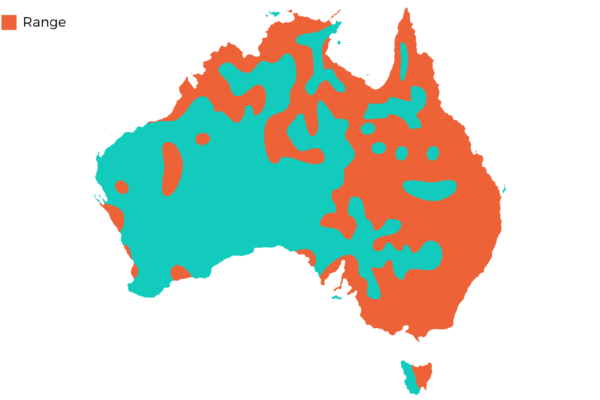Description
A large white waterbird with a long bill that is shaped like a spoon. Females are slightly smaller with shorter legs and bill. Most often seen wading in shallow waters, sweeping its submerged bill back and forth in a wide arc to find food. It is a wading bird and has long legs for walking through water.
Distribution
The Royal Spoonbill can be found throughout eastern and northern mainland Australia from the Kimberley region of Western Australia across the Top End and through Queensland, New South Wales and Victoria, to south-eastern South Australia.

Lifespan
Approximately 15 years.
Size
The Royal Spoonbill is approximately 80 cm tall, and has a weight of approximately 1.4 – 2.07 kg. It is a wading bird and has long legs for walking through water.
Diet
Mainly consume fish, shrimp, crustaceans and other aquatic insects.
Habitat
The Royal Spoonbill is found in shallow freshwater and saltwater wetlands, intertidal mud flats and wet grasslands. Both permanent and temporary inland waters are used when available in the arid zone. They will also use artificial wetlands such as sewage lagoons, salt fields, dams and reservoirs.
Breeding
Forming monogamous pairs for the duration of the breeding season and nests in colonies alongside others, including yellow-billed spoonbills, ibises, herons and cormorants. Breeding is October - March when 2 - 4 eggs are laid, both parents will incubate the eggs for 25 days. In Australia, whole colonies have been known to desert their eggs after a minor upset.